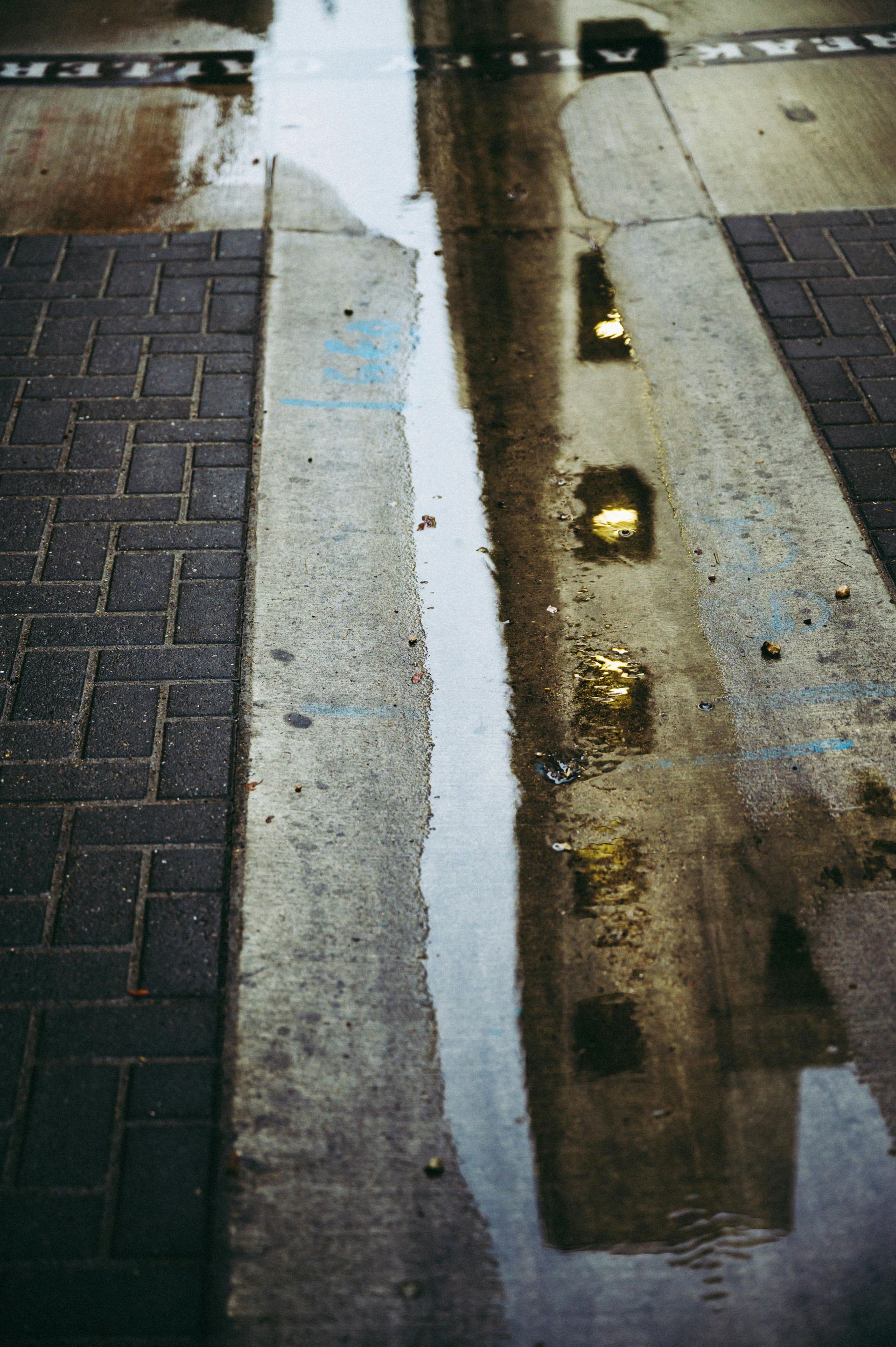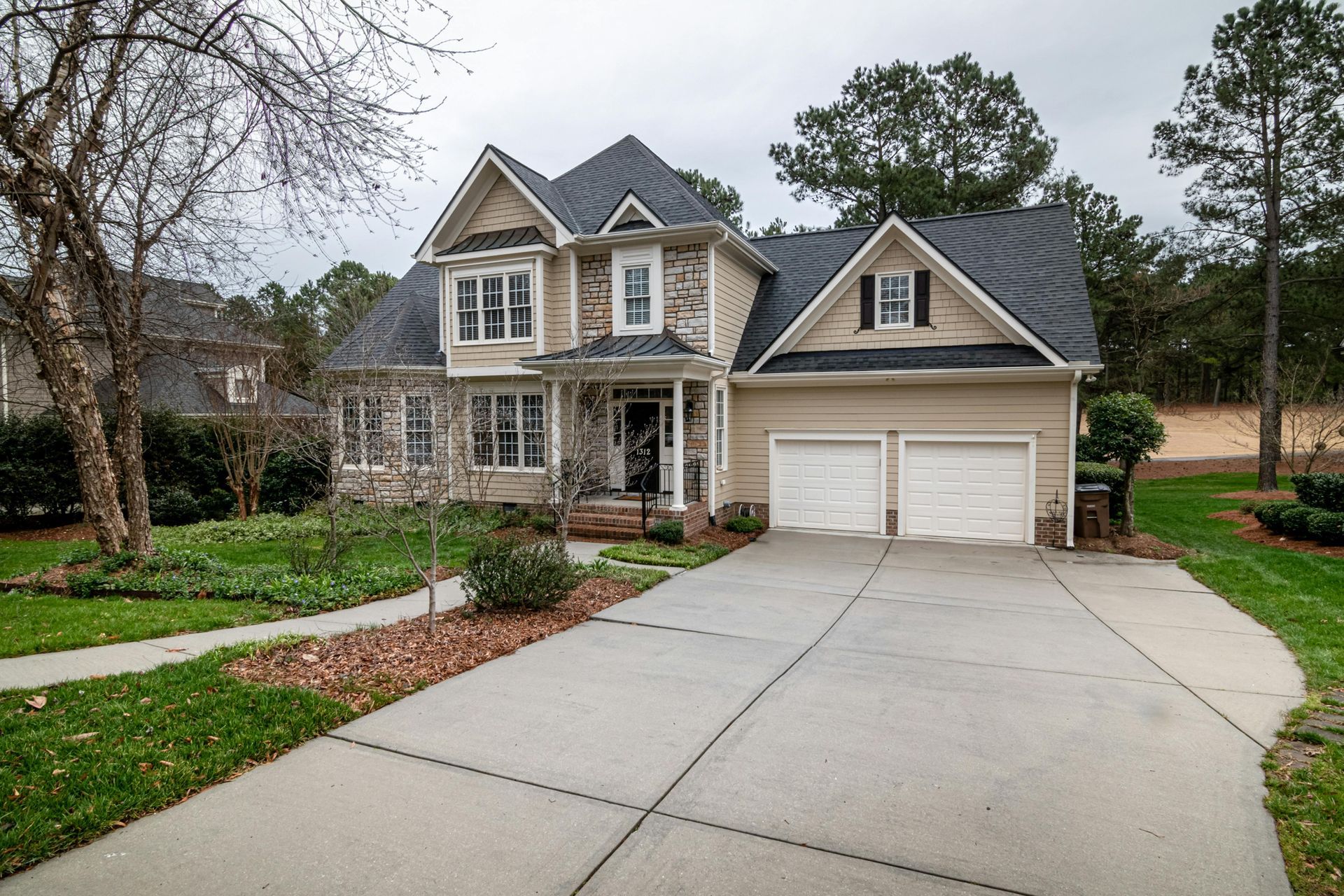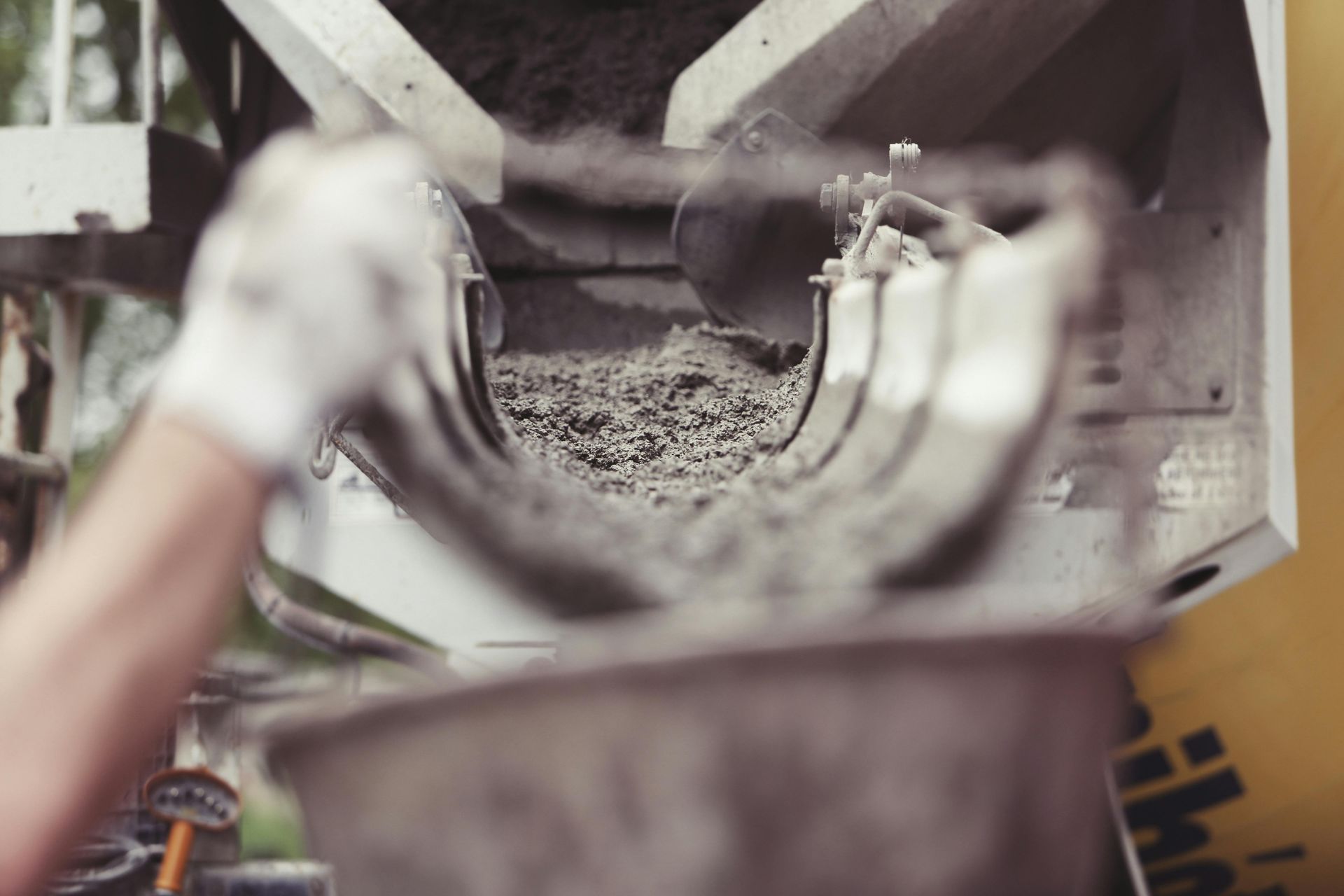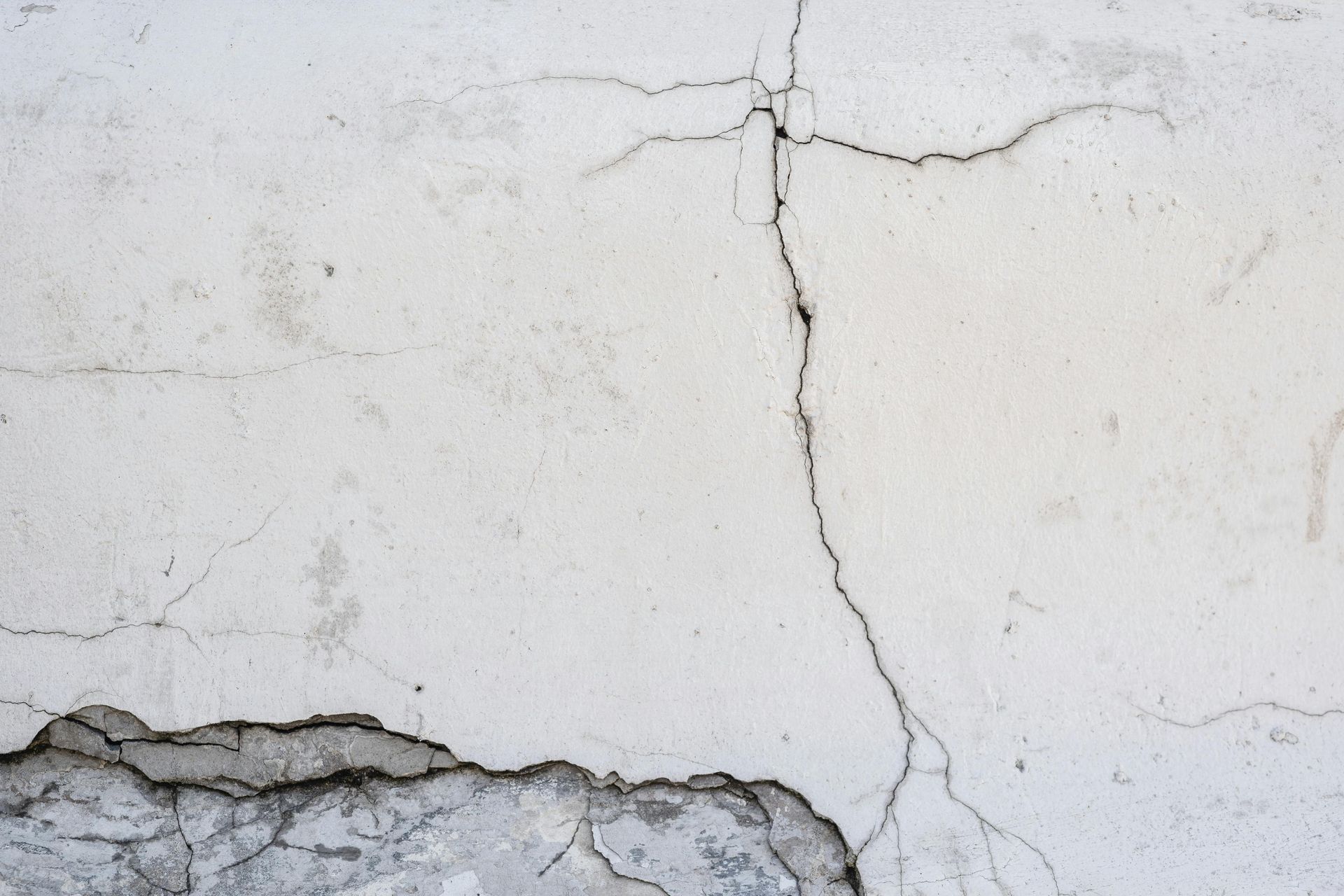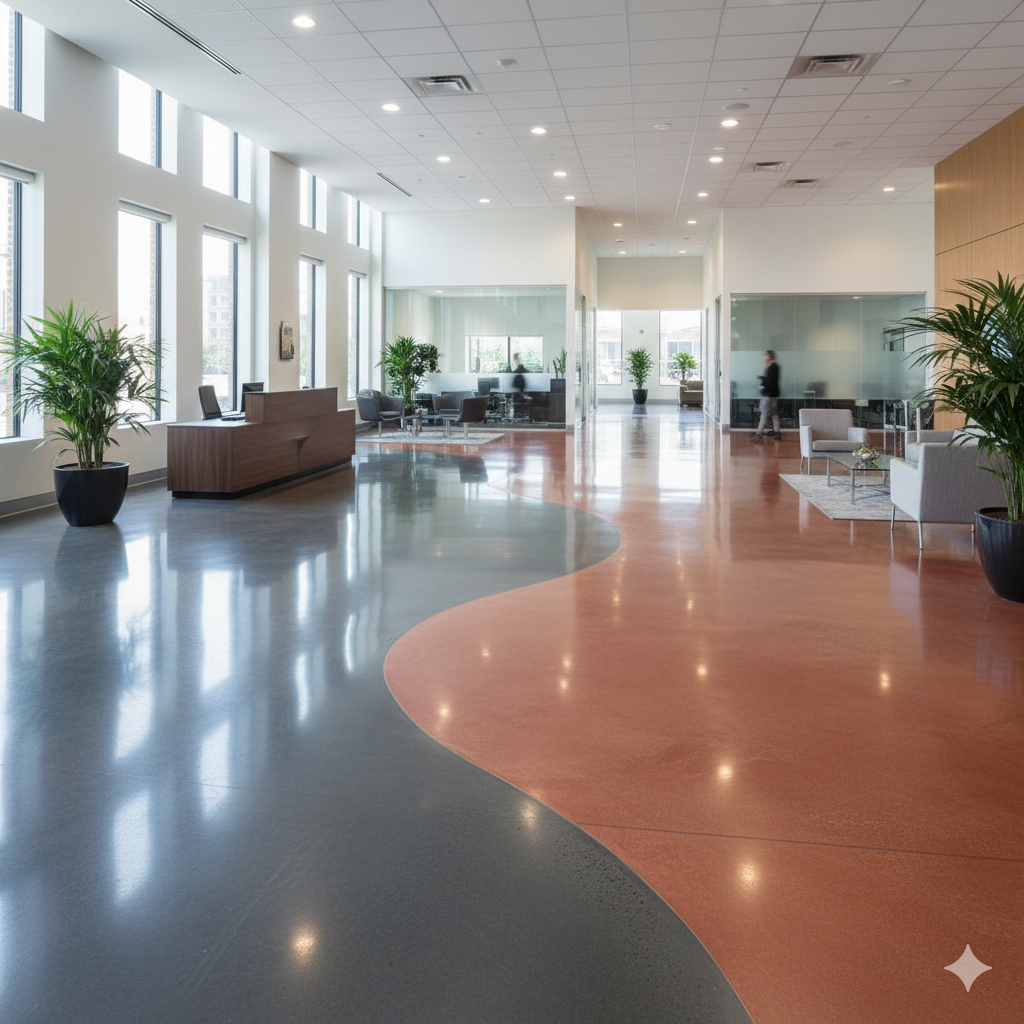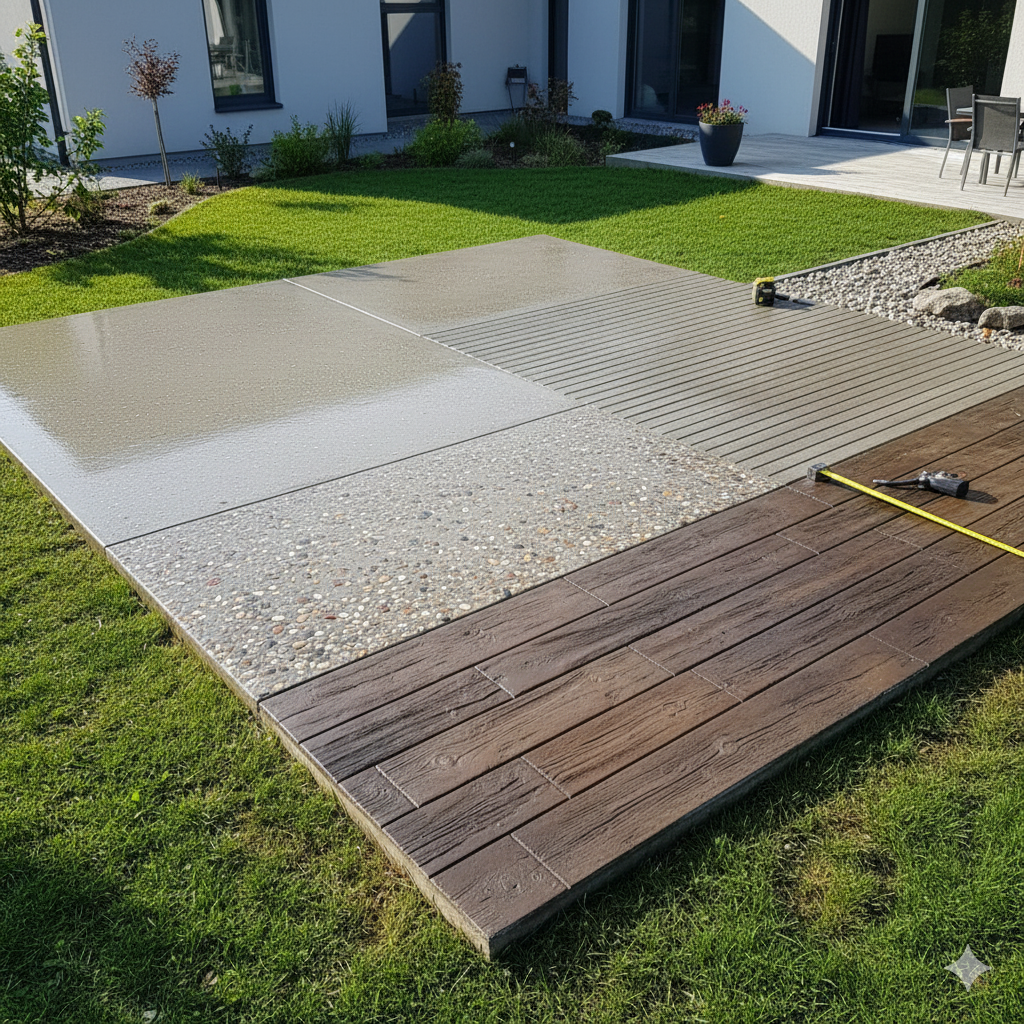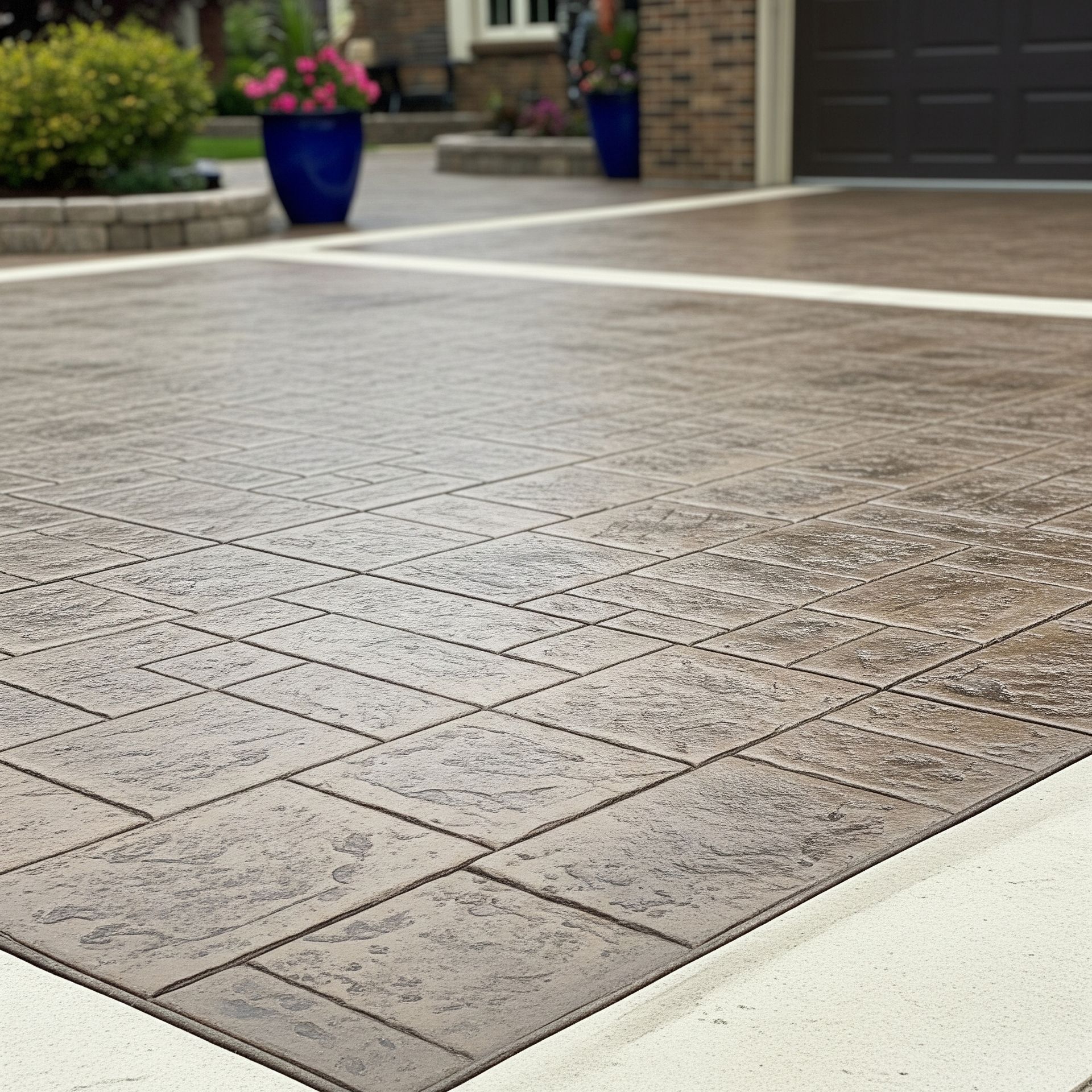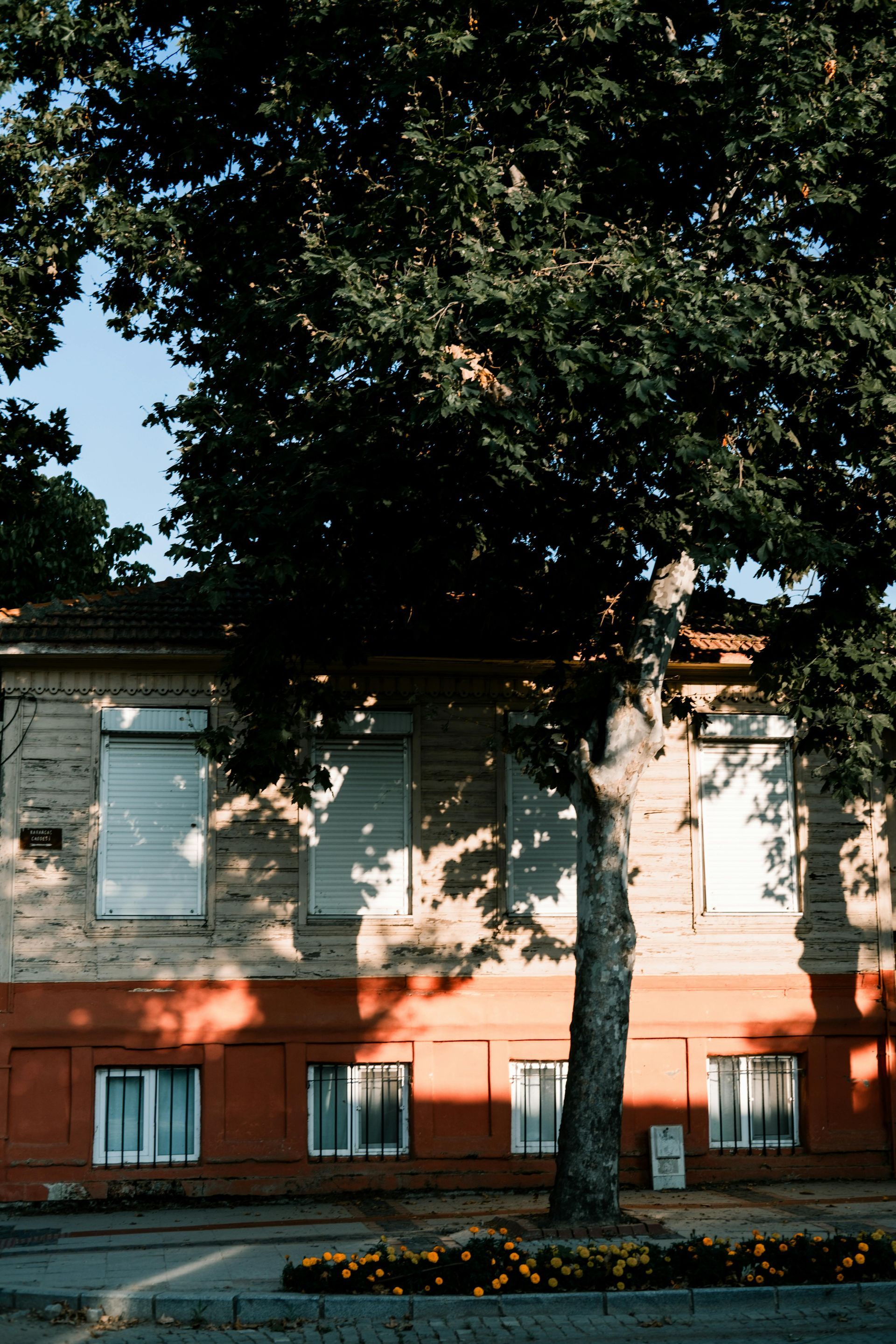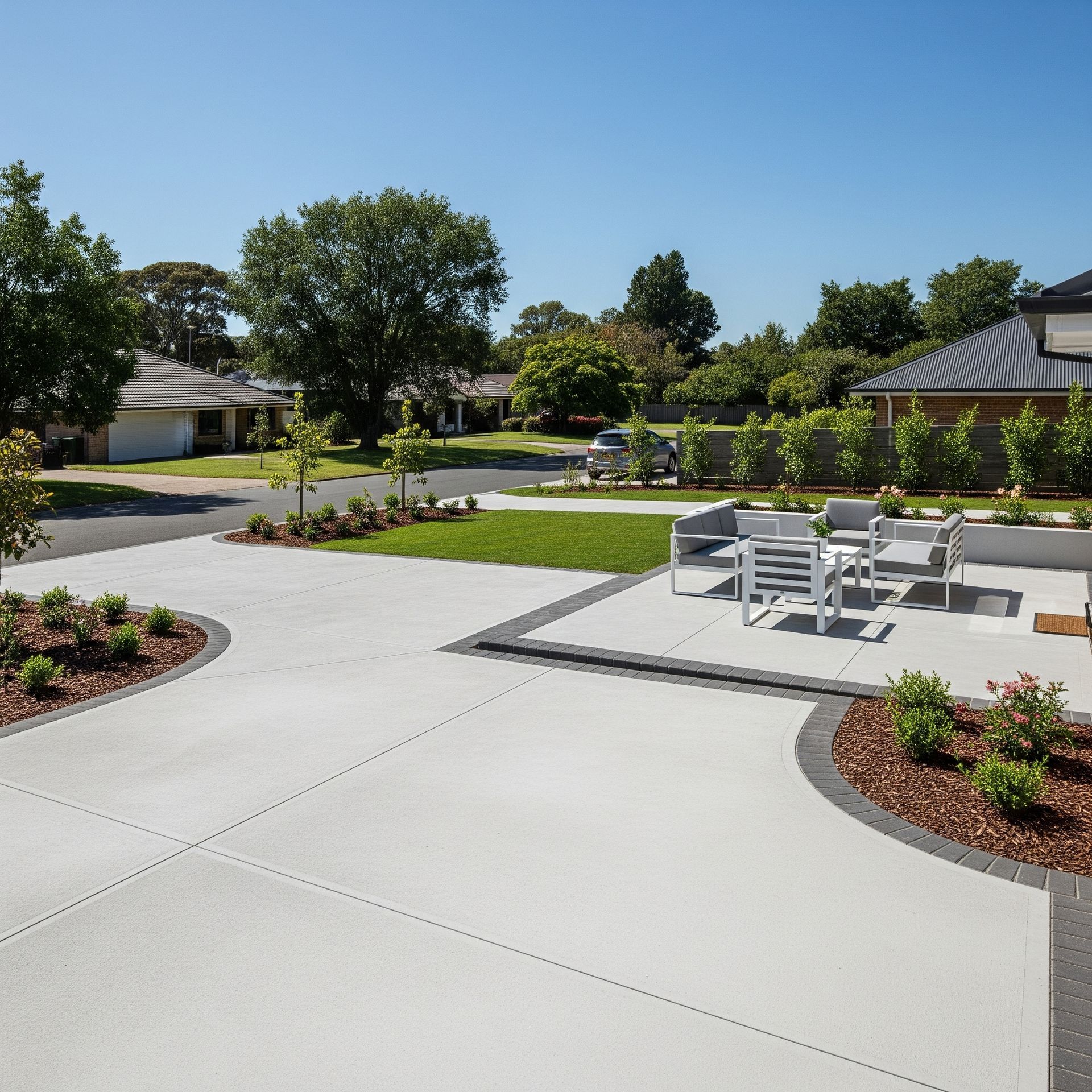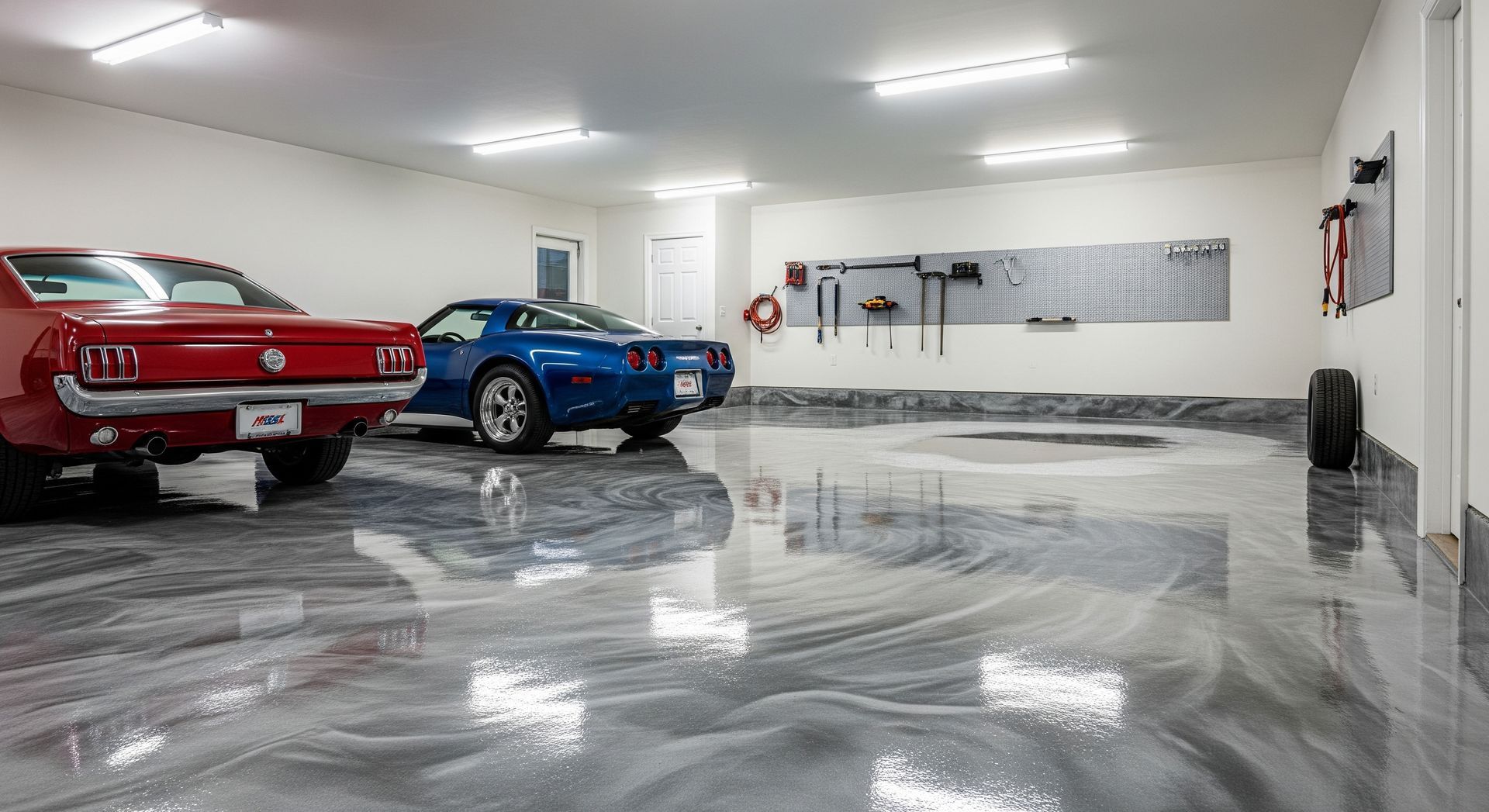Essential Concrete Driveway Repair and Resurfacing Tips
Your concrete driveway endures constant pressure from vehicles, weather changes, and daily wear. All of that beating can lead to cracks, surface deterioration, and structural issues over time. Understanding when and how to address these problems through proper concrete driveway repair or complete resurfacing can save you thousands while extending your driveway's lifespan and enhancing your Florida property's curb appeal.
Key Takeaways
- Minor cracks need targeted repair while extensive damage requires full resurfacing.
- Proper surface preparation directly impacts project longevity and final appearance.
- Spring and fall provide optimal weather conditions for concrete curing.
- Professional contractors offer specialized equipment and warranty coverage.
- Regular sealing and maintenance extend driveway life significantly.
- Material choice affects durability, appearance, and long-term costs.
When to Consider Driveway Repair vs Resurfacing
Determining whether your concrete driveway needs targeted repairs or complete resurfacing depends on the extent and type of damage present. Understanding these differences helps you make cost-effective decisions and avoid unnecessary work.
Signs You Need Concrete Driveway Repair
Small to moderate damage typically qualifies for repair rather than full resurfacing. These issues often develop gradually and can be addressed with targeted solutions that restore function and appearance without replacing the entire surface.
- Hairline cracks less than 1/4 inch wide that haven't caused surface elevation changes
- Minor surface spalling or scaling affecting less than 30% of the total driveway area
- Small potholes or depressions that can be patched without affecting the surrounding concrete
- Isolated staining from oil, rust, or other substances that haven't penetrated deeply
- Joint separation or minor edge damage along driveway borders
When Driveway Resurfacing Becomes Necessary
Extensive damage or widespread deterioration typically requires resurfacing concrete driveways to achieve lasting results. These conditions indicate that the existing surface has reached the end of its effective lifespan and needs comprehensive renewal.
- Multiple large cracks exceeding 1/2 inch in width or showing signs of movement
- Widespread surface deterioration affecting more than 40% of the driveway area
- Significant settling, heaving, or elevation changes that affect drainage
- Deep staining or discoloration that penetrates throughout the concrete surface
- Age-related wear where the surface shows general deterioration despite previous repairs
Essential Preparation Steps for Successful Results
Proper preparation forms the foundation of any successful concrete driveway repair and resurfacing project. Skipping preparation steps often leads to poor adhesion, premature failure, and unsatisfactory appearance that requires costly rework.
Surface Cleaning and Assessment
Thorough cleaning removes contaminants that prevent proper bonding between existing concrete and repair materials. This process also reveals the true extent of damage and helps determine the most appropriate repair approach.
- Power washing removes surface dirt, oil stains, and loose concrete debris
- Chemical cleaning addresses stubborn stains and prepares surfaces for optimal adhesion
- Crack mapping identifies all damage areas and helps plan repair sequencing
- Moisture testing ensures concrete is adequately dry before applying repair materials
Crack Repair and Surface Preparation
Addressing existing cracks before resurfacing prevents them from telegraphing through new materials and compromising the finished surface. Different crack types require specific repair techniques to ensure lasting results.
- Crack routing creates clean edges and removes loose material for better repair material adhesion
- Flexible sealants accommodate minor movement while rigid fillers work for stable cracks
- Surface profiling through grinding or etching creates proper texture for overlay adhesion
- Primer application on prepared surfaces enhances bonding between old and new concrete
Professional vs DIY Resurfacing Considerations
The decision to repair and resurface concrete driveway surfaces yourself or hire professional driveway resurfacing contractors depends on project complexity, available time, tool access, and desired results. Understanding the advantages and challenges of each approach helps you make an informed choice.
Benefits of Professional Installation
Professional contractors bring specialized equipment, proven techniques, and industry experience that often produce superior results with comprehensive warranty coverage. Their expertise becomes particularly valuable for complex repairs or large resurfacing projects.
- Access to commercial-grade equipment and specialized tools for surface preparation and application
- Experience with different concrete conditions and appropriate repair techniques
- Warranty coverage and professional liability insurance for peace of mind
- Efficient project completion with minimal disruption to daily routines
- Knowledge of local building codes and permit requirements when applicable
DIY Project Considerations
DIY concrete driveway repair can provide cost savings for homeowners with appropriate skills, tools, and time availability. However, success depends on a realistic assessment of project requirements and careful attention to preparation and application details.
- Cost savings on labor expenses, though material and tool rental costs remain
- Personal satisfaction from completing home improvement projects independently
- Flexibility to work at your own pace and schedule around other commitments
- Learning experience that builds skills for future maintenance and repairs
- Control over material quality and application methods throughout the project
Cost Factors and Budgeting for Driveway Projects
Understanding the various factors that influence concrete driveway repair and resurfacing costs helps you budget appropriately and compare different approaches effectively. Project costs vary significantly based on damage extent, chosen materials, labor requirements, and regional factors.
| Project Type | Typical Cost Range | Key Factors |
|---|---|---|
| Minor Crack Repair | $2-8 per linear foot | Crack size, accessibility, material type |
| Surface Resurfacing | $3-7 per square foot | Surface area, overlay thickness, decorative options |
| Complete Replacement | $8-15 per square foot | Excavation needs, base preparation, concrete thickness |
Material Selection Impact on Costs
Different resurfacing materials offer varying performance characteristics and price points. Understanding these options helps you balance upfront costs with long-term durability and maintenance requirements for your specific situation.
- Basic concrete overlays provide economical resurfacing with a standard gray appearance
- Polymer-modified systems offer enhanced flexibility and adhesion for challenging conditions
- Decorative options, including stamping, staining, or texturing, increase costs but enhance appearance
- High-performance materials resist specific challenges like freeze-thaw cycles or chemical exposure
Maintenance Tips for Long-lasting Results
Proper maintenance after completing concrete driveway repair and resurfacing projects significantly extends surface life and preserves your investment. Establishing regular care routines prevents minor issues from developing into major problems requiring extensive repairs.
Regular Cleaning and Inspection
Consistent cleaning removes harmful substances before they can penetrate and damage concrete surfaces. Regular inspections help identify developing problems early, when simple repairs can prevent costly damage.
- Monthly cleaning removes dirt, debris, and potential staining agents
- Immediate cleanup of oil, antifreeze, and other automotive fluids
- Seasonal inspection for new cracks, surface wear, or drainage issues
- Winter preparation, including proper ice removal techniques
Preventive Sealing and Protection
Sealing concrete surfaces provides protection against moisture intrusion, freeze-thaw damage, and chemical penetration. Proper timing and application methods maximize sealer effectiveness and concrete protection.
- Initial sealing within the first year after installation or resurfacing
- Resealing every 2-3 years or when water no longer beads on the surface
- Proper surface preparation before sealer application
- Selection of appropriate sealer types for your climate and usage patterns
Choosing Qualified Driveway Resurfacing Contractors
Selecting experienced driveway resurfacing contractors ensures professional results and protects your investment through proper installation techniques and warranty coverage. Thorough contractor evaluation helps you avoid common pitfalls and achieve satisfactory outcomes.
Essential Contractor Qualifications
Qualified contractors demonstrate specific expertise in concrete work through licensing, insurance, and proven track records. These credentials guarantee professional competence and financial protection for your project.
- Current licensing and proper insurance coverage, including general liability and workers' compensation
- Specialized experience with concrete driveway projects rather than general construction
- Local references and examples of completed projects in your area
- Written warranties covering both materials and workmanship
- Transparent pricing and detailed project specifications
Questions to Ask Potential Contractors
Asking specific questions helps evaluate contractor expertise and project approach while establishing clear expectations for timeline, costs, and results. These conversations reveal important details about their methods and reliability.
- What specific preparation methods do you use for different concrete conditions?
- Which resurfacing materials do you recommend for my specific situation and why?
- How do you handle unexpected issues like hidden damage or weather delays?
- What warranty coverage do you provide, and how do you handle warranty claims?
- Can you provide references from recent projects similar to mine?
Frequently Asked Questions
How long does concrete driveway resurfacing typically last?
Properly installed concrete resurfacing typically lasts 10-20 years, depending on climate conditions, traffic load, and maintenance quality. Regular sealing and prompt repair of minor issues can extend this lifespan significantly.
What is the best time of year to refinish concrete driveway surfaces?
Spring and fall provide optimal conditions for concrete work with moderate temperatures and stable weather patterns. Avoid extreme heat, freezing temperatures, or rainy periods that can compromise curing and final results.
Can I drive on my driveway immediately after resurfacing?
Most concrete resurfacing requires 24-48 hours before light foot traffic and 7 days before vehicle use. Full-strength development takes 28 days, though normal use can typically resume much earlier with proper curing.
How much does professional concrete driveway repair cost compared to DIY?
Professional installation typically costs 2-3 times more than DIY materials but includes expertise, equipment, and warranty coverage. DIY projects require tool rental, learning curve time, and carry a higher risk of mistakes requiring expensive corrections.
What causes concrete driveways to crack and deteriorate over time?
Common causes include freeze-thaw cycles, ground settling, heavy vehicle loads, poor drainage, and natural concrete shrinkage. Understanding these factors helps with prevention strategies and appropriate repair timing.
Final Thoughts
Successfully maintaining and improving your concrete driveway through timely repairs and strategic resurfacing protects your property value while ensuring safe and attractive access to your home. Whether you choose professional installation or tackle DIY projects, understanding proper techniques, materials, and timing helps you achieve lasting results that withstand daily use and weather challenges for many years to come.
Ready to transform your concrete? Contact us today to discover how decorative overlays can elevate your property's beauty and value.
Reference:
https://www.myfloridalicense.com/intentions2.asp?chBoard=true&boardid=06
